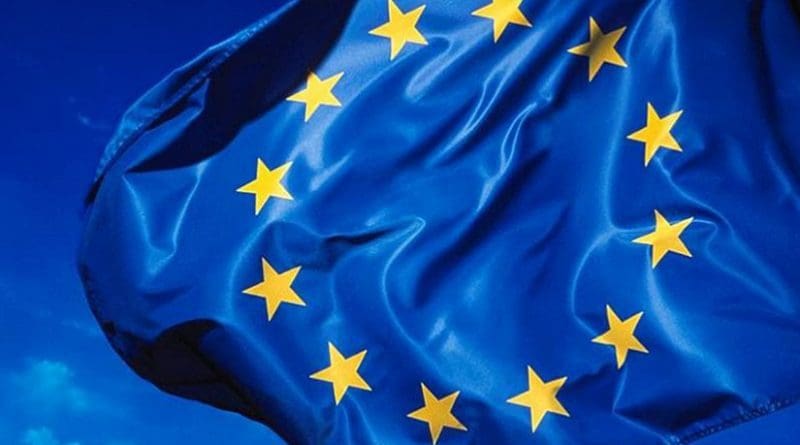EU Fighting Lone Battle For Human Rights In Asia – OpEd
By Fraser Cameron
The European Union has a long tradition of promoting democracy and human rights in Asia, often in informal cooperation with the United States. Until 2014, it seemed that things were moving in the right direction, but since then there has been backsliding in China and several Southeast Asian countries. Xi Jinping has tightened control in China, the military endures in Thailand, Duterte’s drug purge is ongoing in the Philippines, the Tatmadaw commits ethnic cleansing in Myanmar, Hun Sen and his party have dissolved the opposition in Cambodia, and so on.
The European Union has struggled to cope with this reversal. It has human rights dialogues with China and most countries in Southeast Asia as well as bloc-to-bloc discussions with the ASEAN Intergovernmental Commission on Human Rights. But the results in these forums have been mixed.
Asian elites often accuse the European Union of lecturing them on human rights. The European Union’s response is that human rights are universal and that many Asian countries have ‘signed up’ to accept such values in numerous UN documents.
This is not to say that the European Union has a clean slate: it is at least partially justified to accuse the European Union of hypocrisy for turning a blind eye to abuses in member states like Poland and Hungary or in countries like Saudi Arabia while it criticises Asian nations. But the hypocrisy only extends so far: the European Union is now taking Poland and Hungary to task for infringing EU norms.
The European Union receives varying levels of support from its member states on human rights. Germany, Sweden, the Netherlands and the United Kingdom have traditionally been the strongest supporters. But Greece and Hungary have both, under pressure from Beijing, blocked critical resolutions aimed at China’s human rights record. Securing a united EU position is unlikely to become easier in the future due to economic pressures that are driving less affluent states closer to Beijing.
The main lever that the European Union has at its disposal is trade sanctions. It has maintained an arms embargo against China since the 1989 Tiananmen Square protests. It preserved tight economic sanctions against Myanmar until the country began to democratise. It is now preparing fresh sanctions against those in the Myanmar military involved in atrocities against the Rohingya and against Cambodia for its draconian measures against the opposition. It has suspended trade talks with Thailand until there is a civilian government in power and has refused to continue trade talks with the Philippines.
The European Union has also used its free trade agreement with Vietnam to ensure Hanoi signs up to international agreements on labour standards. Commissioner for Trade Cecilia Malmstrom is a strong advocate for human rights and is aware of the strong and differing feelings they muster in the European Parliament. These divergent views must be taken into account as it is the Parliament that must ratify all trade deals.
Only Norway, Canada and occasionally Australia and New Zealand support the European Union’s efforts to promote democracy and human rights in the region — and Norway is quite cautious after receiving lengthy political and trade sanctions from China when the Nobel Peace Prize was awarded to dissident Liu Xiaobo.
Despite professing support for human rights, neither Japan nor South Korea is prepared to criticise countries in Asia. Neither is India, the largest democracy in the world. Among Asian nations, only Indonesia and Malaysia have joined the European Union in making critical comments about the plight of the Rohingya in Myanmar, and they did so to support their domestic agendas.
The biggest problem is the lack of support from the United States. With Donald Trump in the White House, Washington no longer places emphasis on human rights except when specific issues contravene US interests — North Korea being the most recent example. China has been given a free pass, and authoritarian leaders from Southeast Asia have been feted without a word about their human rights records. During his visit to Manila in November, Trump described President Duterte as a ‘good guy’ and did not utter a word of criticism about extra-judicial killings.
Unlike the European Union or the Obama administration, Trump has shown no interest in tying trade deals to human rights. Even when the United States does make public statements about human rights (as Rex Tillerson did in Myanmar in November), it tends not to follow up because of a desire to continue selling US military equipment. There are strong ties between the Pentagon and local militaries throughout Asia that continue to influence the US approach to human rights.
This change in US attitudes puts the European Union in a difficult situation. It does not wish to push the Philippines, Thailand or Myanmar into the hands of China and thus lose all influence. Local leaders also ask the European Union why it continues to push its normative agenda when the United States has ceased to do so.
The European Union is exposed. It has lost an important ally and there are only a small number of like-minded countries prepared to offer support. It is also striving to ensure a united EU voice regardless of whether or not individual member states are pursuing their own economic interests.
Despite these difficulties, the European Union cannot give up on its treaty-based normative agenda and should continue to link trade deals to human rights and speak out on abuses. It has already issued three critical statements on China in 2018. But its human rights advocacy may have to arrive in a different form: there is likely to be less lecturing and more focus on practical issues such as training judges and journalists, supporting law schools and exchanging information on good governance.

